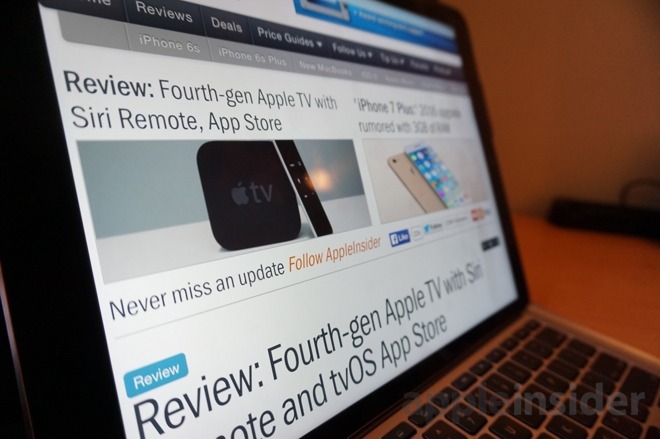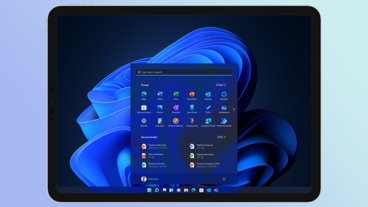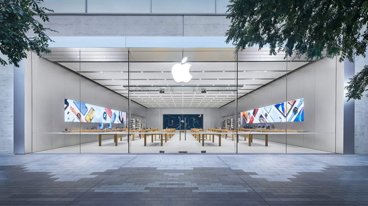It has long been speculated that Apple's iPad and MacBook would one day come together in a hybrid device, but Apple CEO Tim Cook put those rumors to bed on Sunday, saying converged machines come with inherent compromises.
As Apple is intent on delivering the best possible experience for both iPad and Mac users, it does not currently subscribe to a one-device-fits-all strategy, Cook told Independent.ie in a recent interview.
"We feel strongly that customers are not really looking for a converged Mac and iPad," Cook said. "Because what that would wind up doing, or what we're worried would happen, is that neither experience would be as good as the customer wants. So we want to make the best tablet in the world and the best Mac in the world. And putting those two together would not achieve either. You'd begin to compromise in different ways."
Cook last week said the new iPad Pro with its massive 12.9-inch display and dedicated accessories is a viable replacement for notebook or desktop PCs. He guesses some iPad Pro users will ditch their other devices altogether, save for phones.
The idea of an Apple-branded convergence device has been bandied about by analysts and pundits alike for years, even before the company decided on iOS to power iPad. Those rumors pick up a bit more steam every time Apple updates its ARM-based A-series chip, which with the latest A9 series — specifically the A9X — stands as legitimate competition to desktop-class CPUs built by Intel.
"It's true that the difference between the X86 and the A-series is much less than it's ever been," says Cook. "That said, what we've tried to do is to recognize that people use both iOS and Mac devices. So we've taken certain features and made them more seamless across the devices. So with things like Handoff we just made it really simple to work on one of our products and pick it up and work on the next product."
While Cook did not explicitly rule out an A-series MacBook, his statements suggest the company has no immediate plans to transplant its chip designs into a more traditional form factor.
 AppleInsider Staff
AppleInsider Staff







-m.jpg)






 Malcolm Owen
Malcolm Owen
 William Gallagher
William Gallagher
 Andrew Orr
Andrew Orr









-m.jpg)




213 Comments
Microsoft has been pushing PC-tablet convergence for over 20 years in the form of the "tablet PC" vision, dating back to the Windows 3.11 days. It has a very long history of being a niche, not a mainstream thing.
Thank you, Tim. Please no hybrid device ever.
They'll keep sharing technologies and benefits, and in the very long term touch will be more commonplace than mice. But trucks will keep on being trucks! I do think A-series Macs will likely come eventually, if Intel doesn't pull it together on performance per power consumption. It would be an ugly transition, but Apple has helped us through that same transition twice already.
Well, he did say the same thing a couple of years ago, about "converging" iOS and OSX, didn't he?
Of course, Apple's mobile processors haven't really been capable of it anyway, have they.
...but, eventually, won't "A?" be?
When that happens, it'll be time to take the question seriously. Denials might then no longer be moot.
[quote name="boredumb" url="/t/190196/apple-will-not-converge-ipad-and-macbook-lines-says-tim-cook#post_2806962"]Well, he [I]did[/I] say the same thing a couple of years ago, about "converging" iOS and OSX, didn't he? Of course, Apple's mobile processors haven't really been capable of it anyway, have they. ...but, eventually, won't "A?" be? When that happens, it'll be time to take the question seriously. Denials might then no longer be moot. [/quote] The A9 and A9X are faster than the Core-M chip used in the new MacBook. Then you have the Mac mini, which starts with a 1.4Ghz Core-i5 and 4GiB RAM. Let's not forget Apple doesn't have to use those same low-clockrates and reduced cores since space for heat dissipation isn't as big an issue as with their handheld devices.